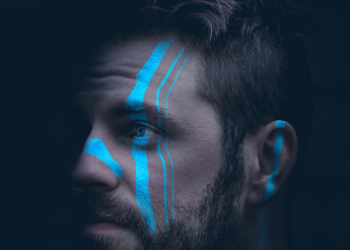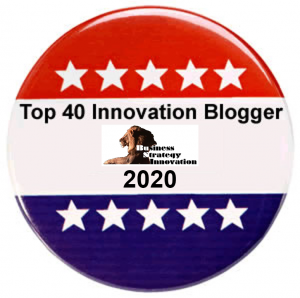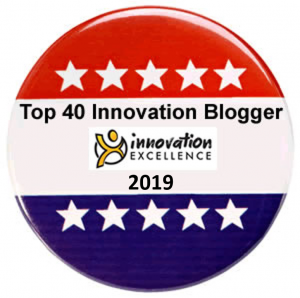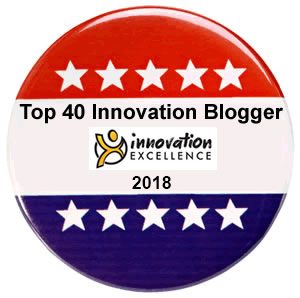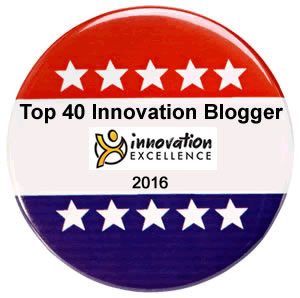As a coach for innovation, I am constantly challenged with finding effective ways of capturing people’s attention to break and disrupt people’s habitual ways of thinking and acting.
Where attention goes energy flows
With the constant war for our attention, and the awareness of the value disruption brings in effecting change and learning, it’s not always an easy and comfortable situation to deal with. Simply because they often cause clients to feel some degree of discomfort and pain. Because disruptions add to, and distort their sense of uncertainty and instability, resulting in a lack of attentive capacity due to their state of cognitive dissonance.
People are neurologically wired to react to and move away from disruption and uncertainty
Paradoxically as a coach for innovation, I also know that without some kind of disruption that creates a crack, or an opening, deep learning, change, and creativity seldom occurs. Also, at ImagineNation™, our experience proves that innovation emerges from a co-creative frequency, and not from a process. Involving real creative conversations, within a safe holding space and container where the interplay between innovation, creativity, and consciousness, that emerges new ideas, spontaneously happens.
Coaching in an innovation culture requires the coach to artfully and skilfully flow with the client’s state of cognitive dissonance, at a co-creative frequency, within a safe container, to transform it into the creative energy that allows people to emerge creative ideas and innovative solutions.
How cognitive dissonance affects people’s mindsets
Cognitive dissonance affects peoples’ autonomic nervous system, which operates largely automatically and outside of their conscious awareness and control. It impacts on their whole being – physically emotionally and cognitively, specifically impacting on their moods and states of mind, or their mindset towards embracing or resisting change.
It is also where people’s neurological, emotional, visceral and cognitive challenges to the massive changes’ innovation cause and bring, thrive. If not dealt with effectively, it will sabotage any innovation-led change efforts.
Coaching in an innovation culture
ImagineNation™ has been running The Coach for Innovators Certified Program globally for more than five years, where innovation is the result of human collisions between different programming, perspectives and thought patterns!
Where coaches for innovation are trained to dance in the moment, at a co-creative frequency, using a paradox lens, that allows contradictory yet interrelated elements to consistently coexist.
This is the key strategy for harnessing an individual’s genius as well as people’s collective genius, in coaching in an innovation culture, by applying the five steps illustrated below:
Cognitive dissonance is the state of having inconsistent thoughts, beliefs, or attitudes, especially as relating to behavioural decisions and attitude change.
Creative tension exists in the gap between the desired future state and current reality and is also a source of energy. If there were no gap, there would be no need for any action to move towards the vision.
Both are normal neurological responses, that occurs when what we know and believe in gets challenged, another way of saying this – is when the status quo gets disrupted, we often don’t know how to make sense of it.
Until this is understood, people feel uncomfortable, insecure and unsafe, and even out of control, so they neurologically respond, habitually and naturally by moving away from what is making them uncomfortable. This creates the imperative for developing a client’s discomfort resilience.
Discomfort resilience is about creating a safe space, or psychological safety for people to feel uncomfortable or overwhelmed, and to then help them to be comfortable with being uncomfortable as a way of life.
Elastic thinking is about letting go of what we know and believe to be true, to challenge conventional mindsets, inquire, listen and challenge the status quo, to be inquisitive, curious and imaginative, experiment with a wide variety of ideas.
Human collisions are about generating constructive debates, being safely provocative, contrary and using conflict, diversity and differences to emerge and explore high-level creative thinking using generative listening, inquiring and debating skills.
Why is this an important innovation coaching skillset?
When these key elements are not included considered, people become psychologically uncomfortable, anxious, confused and conflicted. They will make some, or all of these cognitive strategies to avoid the anxiety, discomfort, tension or confusion change led innovation causes by;
- Avoiding; people will ignore, delete or deny the information, to move away for the pain or discomfort.
- Distorting; people will exaggerate and make the change process bigger, more radical, important, dangerous that what it really is.
- Disconfirming; people will resist and ignore a different mental model, or point of view, because it does not confirm their core beliefs.
- Reassuring; people will seek assurance from others to validate or justify what they believe to be true.
- Re-evaluating; people will re-evaluate or change the importance of existing, new ideas and facts.
Coaching for innovation
Coaching in an innovation culture aims to deeply engage people towards embracing change, without judgement or evaluation. To evoke and bring forth possibilities by discovering opportunities that bring about constructive nonconformity, that uncover counterintuitive and surprising ideas and solutions. By creating safe, human collisions, resulting in an explosion of creative energy that leads to new ideas, breakthroughs and innovative solutions, and building their commitment to the newly emerged creative ideas and the conviction to move forward with them.
Join the next free monthly innovation webinars in our Making Innovation a Habit Series – “Dancing with Disruption”
It’s on Tuesday, 3rd March at 9.00 pm London, 5.00 am New York & 1.00pm San Francisco and on Wednesday, 4th March at 8.00 am Sydney & Melbourne, 2020. Register Now.

